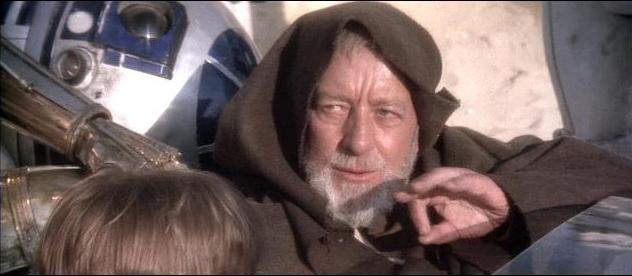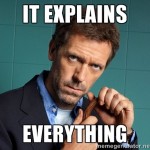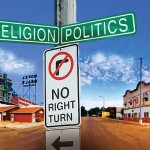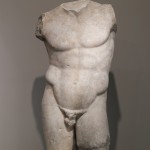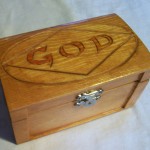I think I’ve come to a resolution.
A few years ago, when I first started interacting with the Pagan online community, it seemed like everyone was talking the language of devotional polytheism. A lot of people were very excited and passionate about it (as they continue to be today). Even Janet Farrar — who had basically written the book (or the books) on Jungian “polytheism” — was writing and talking about a whole different type of experience that she (and Gavin Bone) called “deity-centered”. It happened that I was looking to deepen my religious practice (when am I not?), and I was intrigued. So, my first question was whether devotional polytheists were really having a categorically different religious experience than I was familiar with. And, if they were, my second question was how I could tap into that — because it sounded awesome! I mean literally awe-some, as in causing awe. I think some of my readers may not realize that the reason I have been querying devotional polytheism for the last couple of years is, not because I was out to destroy it, but because I was seriously considering it.
The problem was that I had difficulty going there mentally. It was not just that the existence of intangible and invisible, but conscious and sentient beings went against my belief about what was real. It was that I had come to Paganism precisely because it seemed down to earth, literally and figuratively, and the idea of literal gods seemed ungrounded to me. (I have since learned from conversations with many devotional polytheists that they do not experience it that way.) Of course, there were other common Pagan beliefs that were too metaphysical for my taste, like magic, but magic could be understood in a number of metaphorical ways other than causing physical change at a distance with your mind. But gods, real gods, like Zeus and Thor, that’s hard to overlook. And what’s more, some people were saying that this was really what Paganism was all about.
My instinct was to try to relate it to what I knew … Jungian Neo-Paganism. Maybe we’re talking about the same thing, but using different language, I thought. After all, Jung himself talked to archetypal images out loud … and they talked back! Maybe we were all having similar experiences, but interpreting them differently, I thought. But I have slowly come around to the opinion that that is not the case.
For example, in one of my recent virtual tea times, Bianca Bradley, a devotional polytheist, asked me whether my gods ever “pestered” me. Well, no. I know the experience of psychological complexes “possessing” me, like when I am overwhelmed with rage or passion, and in more subtle ways — but who hasn’t had that experience? And I know the experience of standing in a forest or the beach and line separating me from the world seems to dissolve — but that is not an uncommon experience either. In any case, that’s clearly not what Bianca meant. She meant pestered, like one person pestering another person, the way my tween daughter pesters my teen son. No, my “gods” don’t pester me that way. Because they’re not persons.
I remembered a post that John Beckett had written last month, where he distinguished the worship of Poseidon and the worship of the sea:
“Do you worship Poseidon or do you worship The Sea? In the distance I hear Poseidon roaring like Davy Jones in Pirates of the Caribbean: ‘I AM THE SEA!’ Perhaps. But Poseidon has one history, one set of stories, one personality. The Sea has another. Poseidon hears prayers and accepts offerings – or not, as He sees fit. The Sea simply is.
“Both are beautiful and powerful and I stand in awe of both. It seems reasonable to me to worship both. But because Poseidon has human-like qualities (which is NOT the same thing as believing “the Gods are just like humans only bigger”) I can relate to him very differently from how I can relate to The Sea. A religion based on mutually beneficial relationships with Deities with human-like qualities will of necessity look and feel very different from a religion based on mutually beneficial relationships with the Natural world. But there is clearly room for both in the Big Tent of Paganism, as well as room for both in the corner of polytheism.”
A few nights ago, I participated in a Google+ hangout with John and several other Pagans and polytheists. And the thing is, you can’t listen to John Beckett describe his experience of Cernunnos without realizing that he does know the difference between the forest god and the forest. After the conversation, I was more convinced than ever that we really are not talking about the same thing at all. I was left with a certain uneasiness, and it took me a couple of hours until I was able to articulate what was bothering me. What I came up with was this question:
Do I really want to have this experience? Do I want to experience the gods this way, the way that devotional polytheists describe, as persons, as historical deities?
And the answer that I came up with was “No.”
At this point, for me, it’s not so much question of whether the polytheists’ gods are real. It’s just not what I’m looking for. I like where my spiritual practice is taking me. I find it challenging and positive. My conception of the “gods” satisfies my rational mind and also engages my emotional self. It’s true that I do want to deepen my practice. Which is why I have been engaging polytheists in discussion over the last couple of years. And this has moved me in the direction of a more devotion (albeit non-theistic) practice. But I realize now that what I am looking for from “gods” is the presence and power, but not the person. I want the gods of the Romantics, not the gods of the ancients. I want Pan, but I want Algernon Blackwood’s Pan and Kenneth Grahame’s Pan, not the Pan of ancient Arcadia. I want Dionysus, but I want Nietzsche’s Dionysus, not the Dionysus of Euripides or Nonnus. I want the Great Goddess of Charles Swinburne and Teilhard de Chardin, not any goddesses of the ancient Greeks or Celts or Norse. You may say that the gods of the Romantics are poetic inventions, to which I would point out the Euripides and Nonnus and all the rest were just the poets of their time. In any case, I’ve realized that I am just not looking for encounters with historical deities or personal gods.
The only hesitation I have about this confession arises from the ridicule it invites from certain devotional polytheists. For all the talk about devotional polytheists being a persecuted minority within Paganism, certain polytheists will express open contempt for any mention of gods or goddesses which does not conform to their experience. What’s more, many polytheists describe their spirituality as a kind of esoteric center of which “vague” nature worship or archetypal “polytheism” are an exoteric periphery. Of course, there’s nothing new about this kind of elitism. Before devotional polytheists were talking this way, many initiatory Wiccans used the same language to describe non-initiatory or celebratory Paganism. “We are initiates into the mysteries, true priests and priestesses,” they seem to say, “while the hoi polloi of the Pagan laity plays around with its unresponsive and metaphorical deities.” The rhetoric about polytheists’ gods being “dangerous” and other Pagans’ gods being “safe” is part and parcel of this. I admit that this language has caused me to question the authenticity of my own experiences on more than one occasion, but in the end it’s been a productive questioning.

Alyxander Folmer has recently done a hilarious, spot-on post about this whole “What is a polytheist?” discussion with cartoons included. That’s me shaking my box in the panel on the right. But I’ve decided I’m tired of shaking my box. Just like in e. e. cumming’s poem, I have pinched and poked and prodded, squeezed and buffeted the “sweet spontaneous earth” that she might conceive gods, and she answers me only with spring. I’ve heard several polytheists say (often without any judgment) that polytheism isn’t for everyone, and they’re right. At some point in my spiritual journey, I have to stop looking over other people’s shoulders and wondering what’s in their box, wondering if someone might be having a deeper spiritual experience than me. I guess I am at that point. I appreciate those polytheists who have let me shake their boxes for a while, but I’ve decided I like my box just fine. I’m pretty sure it’s empty. But it’s a special kind of emptiness (like the “Pregnant Abyss” of Milton and Emerson’s “Wise Silence”). In any case, it’s my box and I’m keeping it.

